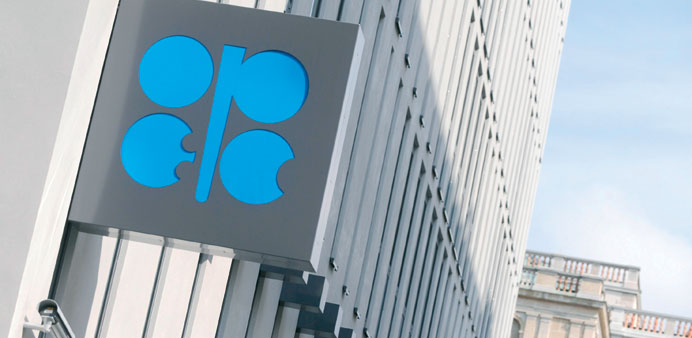|
Saudi Arabia produced 9.3mn bpd of oil in April, up from 9.14mn bpd in March, an industry source said yesterday. |
Supply to the domestic and export markets was around 9.2mn bpd, up slightly from the 9.15mn bpd supplied in March, the source said. The other 100,000 bpd of oil produced is likely to have been put into storage.
Export figures were not available.
Sources familiar with Saudi oil policy said in late April that they expected external demand for Saudi crude to remain steady from March through June 2013.
But Saudi Arabia’s own crude oil demand for power generation has jumped by an average of 147,000 bpd from March to April in the previous three years, according to a Reuters analysis of official data.
The increase from March to April 2012 was much lower, however, at just 64,000 bpd, due to more gas supply coming on line in early 2012 to feed Saudi power plants.
Benchmark Brent crude oil has fallen from almost $120 in February on concerns about the global economic outlook, though it is still above Saudi Arabia’s preferred level of $100.
According to the latest Reuters survey, overall Opec crude oil output rebounded in April from its lowest monthly level in more than a year due to the end of export disruptions in Iraq and Libya and a rise in Iranian sales.
Opec is scheduled to meet in Vienna at the end of May. In early April it trimmed its forecast for global growth in oil demand in 2013.
Even if export demand for Saudi oil weakens over the next few months, the rise in its own use for power plants to meet a surge in air conditioning demand should support Saudi production over the summer.
If Asian demand for Saudi crude falters, the surge in domestic demand should still support production, especially as any reduction in output would deal a double blow of depriving industry of gas feedstock while condemning even more oil to burn in power plants because there is less associated gas.
Riyadh has long insisted that it adjusts oil supply to meet demand and not to steer prices. With Brent crude trading at around $104 a barrel on April 30, but the world economy still seen as fragile, Saudi oil policy makers will be wary of raising production significantly to meet their own demand.
Using stocks to meet the air-conditioning driven demand surge would avoid having to raise production above current levels of around 9.2mn bpd - a move which risks driving oil prices well below Saudi Arabia’s stated preferred level of around $100 a barrel.
Saudi oil exports have fallen relative to production in three of the four summers since 2009, when domestic demand has eaten into exports each year, JODI data shows.

